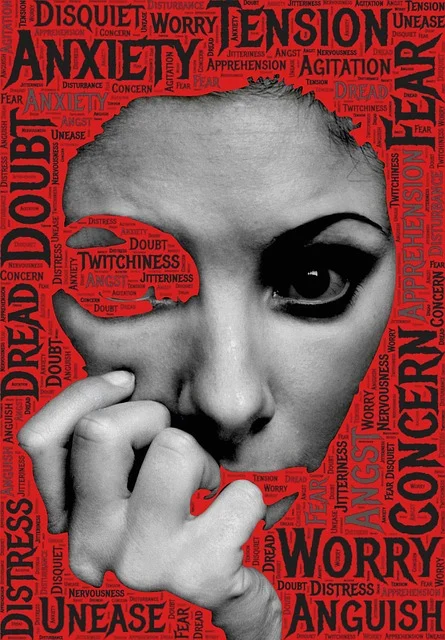There are moments in life when sadness takes on a deeper shade—when emotions stretch beyond everyday stress or loss and become rooted in profound questions about existence itself.
Questions like “What is the purpose of my life?”, “Why do I feel empty even when everything seems fine?”, or “What does it all mean?” mark the territory of what psychologists call existential depression.

Unlike typical forms of depression caused primarily by neurochemical imbalances or life stressors, existential depression arises from an inner crisis of meaning. It’s the psychological pain that comes when one confronts the realities of mortality, freedom, isolation, and the search for purpose.
This article explores the phenomenon in detail—its origins in existential philosophy and psychology, its connection to crises of meaning, and ways to find light through understanding, therapy, and purposeful living.
What Is Existential Depression?
Existential depression is a form of profound emotional distress that emerges when individuals confront the perceived meaninglessness of life. It’s less about sadness over specific events and more about the overwhelming sense that life lacks inherent purpose.
People experiencing existential depression often report feelings of emptiness, disconnection, or apathy. They may intellectually understand their circumstances yet feel emotionally detached from them. Questions about identity, morality, and mortality occupy their thoughts.
Core Characteristics:
- Persistent feelings of emptiness or meaninglessness.
- Intense self-reflection and philosophical rumination.
- Loss of motivation or pleasure in daily activities.
- Emotional detachment from social norms or material pursuits.
- Heightened sensitivity to injustice, mortality, or suffering.
While existential depression is not a formal diagnosis in the DSM-5, it is widely recognized in existential psychology and clinical philosophy. It often coexists with traditional depression or anxiety but differs in its root cause—a conflict of meaning rather than a purely biochemical imbalance.
Interestingly, existential depression is more common among highly self-aware or gifted individuals—those who tend to think deeply about existence, purpose, and morality. Their heightened awareness can become both a gift and a burden, especially when life’s mysteries offer no clear answers.
What Is the Existential View of Depression?
To understand existential depression, we must look at the existential view of human emotion, pioneered by thinkers like Viktor Frankl, Rollo May, and Irvin D. Yalom.
Existential psychology sees depression not merely as an illness but as a natural human response to confronting life’s ultimate questions:
- What gives my life meaning?
- Why must I suffer?
- What happens when I die?
- Who am I beyond my roles and achievements?
From this perspective, depression can emerge when these questions remain unanswered or when individuals lose touch with a sense of personal purpose.
Key Existential Concepts Influencing Depression:
- Freedom and Responsibility – Humans are free to make choices, but that freedom brings the burden of responsibility and uncertainty.
- Isolation – Despite relationships, each person faces their inner world alone. This realization can lead to feelings of existential loneliness.
- Meaninglessness – When traditional structures (religion, culture, relationships) fail to provide meaning, people may feel lost or purposeless.
- Mortality Awareness – Recognizing that life is finite can lead to despair—but also to a deeper appreciation for existence.
Viktor Frankl, a Holocaust survivor and founder of Logotherapy, famously wrote:
“Those who have a ‘why’ to live can bear almost any ‘how.’”
His work reminds us that the absence of meaning, not suffering itself, is often the true source of despair. Existential depression, then, is the emotional manifestation of a crisis of meaning—a call to rediscover one’s “why.”
What Does an Existential Crisis Mean?
An existential crisis occurs when an individual questions the fundamental basis of their existence. It’s a psychological turning point where one becomes deeply aware of life’s impermanence, uncertainty, or seeming futility.
This crisis can manifest at any stage of life and is often triggered by major transitions or losses—such as bereavement, career change, relationship breakdown, or achieving success that feels empty.
During an existential crisis, people may ask:
- “Am I living authentically, or just following expectations?”
- “If life is temporary, what truly matters?”
- “Do my choices have meaning?”
These questions, while painful, are also opportunities for self-exploration and transformation.
Philosophers like Søren Kierkegaard and Jean-Paul Sartre described existential crisis as a confrontation with freedom—the realization that one alone is responsible for giving life meaning.
However, when this confrontation feels unbearable or unresolved, it can spiral into existential depression, marked by chronic hopelessness and detachment.
What Is the Difference Between an Existential Crisis and Depression?
While an existential crisis and existential depression share overlapping themes of meaning and purpose, they differ in duration, depth, and emotional tone.
Existential Crisis:
- A temporary period of questioning or self-reflection.
- Often triggered by life changes or philosophical awakening.
- Can lead to growth, reevaluation, and greater authenticity.
- Emotional intensity may fluctuate; insight may emerge.
Existential Depression:
- A prolonged, debilitating state of hopelessness or emptiness.
- Accompanied by emotional numbness, fatigue, and disinterest in life.
- May co-occur with clinical depression or anxiety.
- Lacks the motivating curiosity often present in a crisis.
In simple terms, an existential crisis is a doorway to deeper understanding, while existential depression can feel like being trapped behind that door—unable to find meaning or motivation to move forward.
Yet, the boundary between the two is not fixed. A crisis can evolve into depression when the individual feels powerless to resolve their existential questions. Conversely, with guidance and reflection, depression can give birth to renewed meaning.
What Is Existential Disorder?
The term “existential disorder” is not an official diagnosis but is used informally to describe a chronic state of philosophical or spiritual despair. Individuals with existential disorder may experience ongoing distress related to questions of purpose, authenticity, and mortality.
They often describe feeling alienated from social norms, unable to find satisfaction in ordinary achievements or material success. The world may seem absurd or empty, echoing the sentiments of Albert Camus’ “The Myth of Sisyphus,” which portrays life as a repetitive struggle against meaninglessness.
Common Features of Existential Disorder:
- Persistent preoccupation with philosophical or moral questions.
- Feelings of detachment or unreality (depersonalization).
- Cynicism or loss of faith in previously held beliefs.
- Difficulty engaging in everyday goals due to perceived futility.
While existential disorder is not categorized in psychiatry, it overlaps with depersonalization disorder, chronic dysthymia, or spiritual crisis.
Its treatment often requires addressing both emotional and philosophical dimensions—helping the individual construct a personal sense of meaning rather than imposing external solutions.
Causes and Triggers of Existential Depression
Existential depression often arises when one’s worldview collapses—when familiar beliefs, roles, or goals no longer offer direction.
Common Triggers Include:
- Loss or grief: confronting mortality or the fragility of love.
- Trauma or suffering: questioning justice or divine purpose.
- Success or achievement: realizing external rewards don’t bring fulfillment.
- Isolation or alienation: feeling disconnected from society or values.
- Philosophical awakening: seeing through social illusions and craving authenticity.
Some people are more prone to existential questioning due to temperament, intellect, or early life experiences. Highly analytical or empathic individuals may sense the world’s contradictions more deeply, which, while intellectually rich, can also lead to emotional fatigue.
The Psychological and Biological Components
While existential depression has philosophical roots, it also interacts with biological processes. Chronic emotional distress can alter brain chemistry, and biochemical imbalances can intensify existential despair—a biopsychosocial loop.
Key Biological Factors:
- Serotonin and dopamine imbalance: can heighten sadness and apathy.
- Stress hormones (cortisol): sustained levels can lead to fatigue and rumination.
- Sleep and nutrition: poor regulation worsens emotional resilience.
Acknowledging the biological dimension does not diminish the existential experience—it broadens understanding. A holistic approach treats both the mind’s meaning and the brain’s chemistry, fostering comprehensive healing.
Healing Existential Depression – Finding Meaning and Balance
Healing existential depression requires more than symptom relief—it demands a reconstruction of meaning. The process involves exploring one’s values, accepting uncertainty, and finding purpose through personal choice.
1. Logotherapy (Viktor Frankl’s Approach)
Frankl proposed that humans are driven by a “will to meaning.” Even in suffering, purpose can be found through service, love, or courage.
Therapists using logotherapy help clients discover meaning in daily acts and relationships, not necessarily grand achievements.
2. Existential Psychotherapy
This approach encourages direct engagement with life’s ultimate concerns—death, freedom, isolation, and meaninglessness.
By facing these truths with honesty, individuals can transcend despair and live more authentically.
3. Mindfulness and Acceptance-Based Therapies
Mindfulness helps individuals observe thoughts without judgment, reducing overidentification with despair. Acceptance therapy complements this by teaching that meaning arises not from control but from presence.
4. Creative and Expressive Outlets
Art, writing, music, and storytelling allow abstract emotions to find expression. They externalize the internal struggle, turning pain into creation.
5. Connection and Community
Isolation fuels existential despair. Joining communities—spiritual, creative, or volunteer-based—can rebuild a sense of belonging and purpose.
Human connection reminds us that meaning is not found in isolation but in shared existence.
6. Philosophical Reading and Reflection
Engaging with works of Viktor Frankl, Camus, Kierkegaard, or Rollo May can normalize existential questioning and offer intellectual solace.
Philosophy becomes a companion rather than an adversary in the search for meaning.
How to Support Someone Experiencing Existential Depression
Supporting someone facing existential depression requires empathy rather than correction. Their pain is not irrational—it reflects a deep confrontation with life’s truths.
Ways to Help:
- Listen deeply. Allow them to express doubts without rushing to solve them.
- Validate their experience. Avoid dismissing existential pain as “overthinking.”
- Encourage exploration. Support reading, therapy, or reflective writing.
- Model balance. Show that meaning can coexist with uncertainty.
- Promote professional help. Existential or integrative therapy can guide them through this complex emotional terrain.
Above all, approach with compassion and patience. Many individuals emerge from existential depression with greater empathy, wisdom, and appreciation for life.
The Growth Beyond the Void – Transformation Through Meaning
Existential depression, while painful, can also serve as a gateway to transformation. When faced bravely, it pushes individuals to move beyond superficial goals toward deeper authenticity.
History and literature are filled with figures who turned existential despair into creative force—writers, philosophers, and thinkers who transformed emptiness into art, awareness, and contribution.
The journey out of existential depression is not about finding one absolute answer but about learning to live with the questions. As Rainer Maria Rilke wrote:
“Be patient toward all that is unsolved in your heart and try to love the questions themselves.”
Through self-awareness, courage, and connection, the void can become a mirror—reflecting not hopelessness, but the vast potential of human meaning-making.
Conclusion – From Darkness to Depth
Existential depression reveals both the fragility and the strength of human consciousness. It is the shadow side of our ability to ask profound questions and seek purpose.
Though it can feel isolating, it is also profoundly human. By embracing vulnerability and searching for meaning, individuals can transform despair into direction.
The path forward is not about escaping uncertainty—it’s about living fully within it, turning suffering into self-knowledge and awareness into compassion.
In the end, existential depression reminds us of one truth:
Even in moments when life feels meaningless, the search for meaning itself is what makes us alive.



